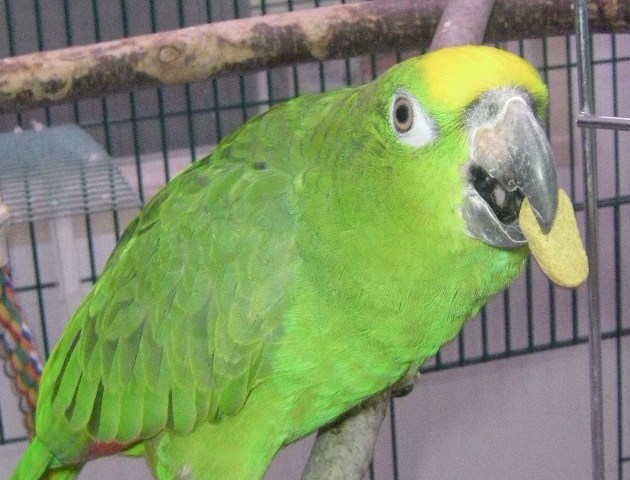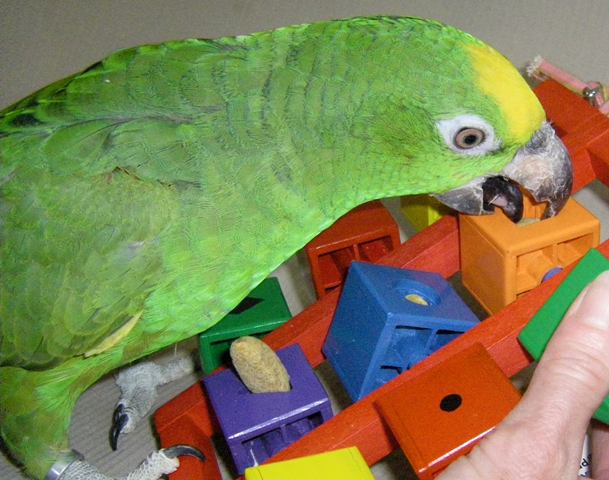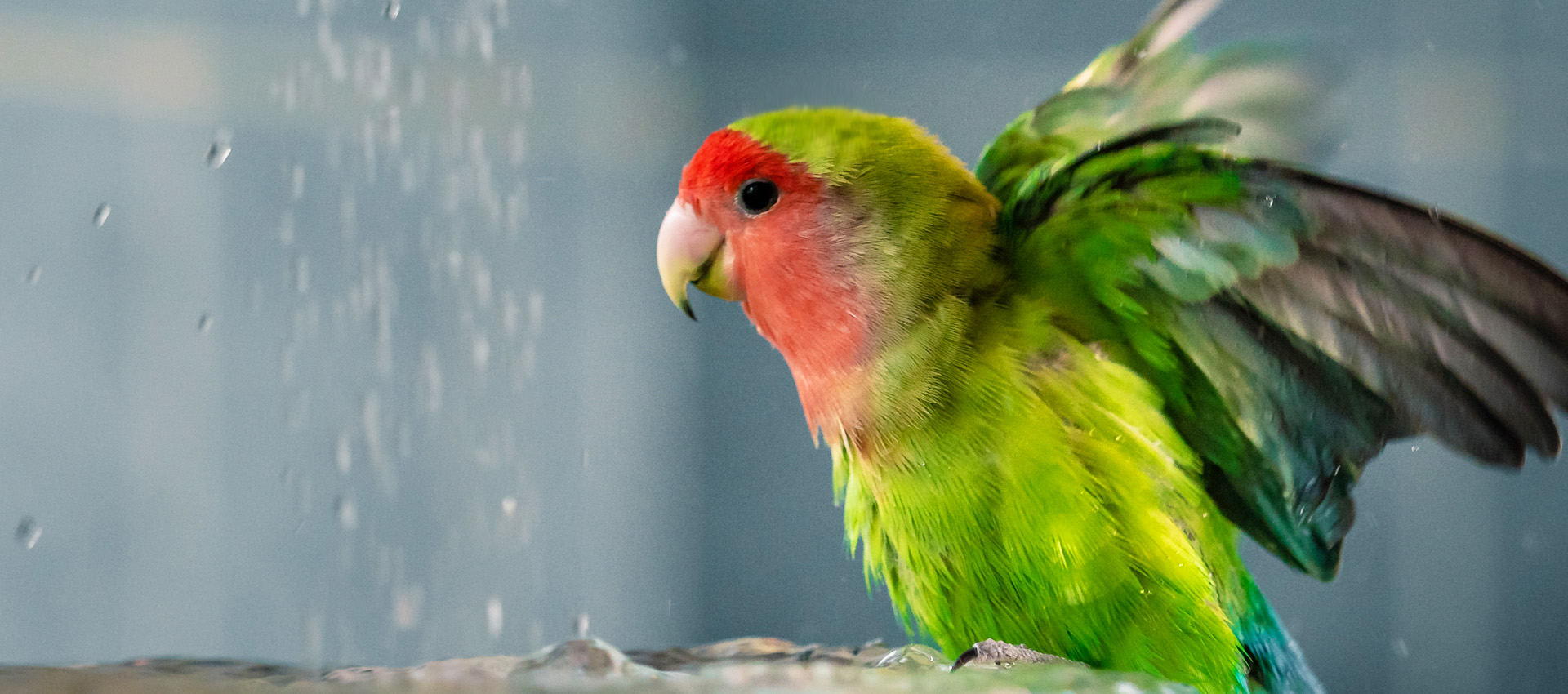Your cart is currently empty!

HARI Official Brand Site

A simple and safe way to convert most pets to a better diet is to start by cleaning the cage each evening, and leaving ONLY Tropican in the feeders.
Ensure that your pet bird is in good health. Changing a bird’s diet can be stressful, even if changing the diet will help his condition. Since birds are masters of hiding their illnesses, the stress incurred during a diet change can catapult the bird into a worse condition.There are many methods to convert parrots to a new diet.
The success of one method over the other depends on the number of birds, the compliance level of the owner, and most importantly, the consistency of the caretaker. Usually a diet change is necessary to prevent malnutrition in parrots, and a veterinarian is usually the instrumental party to a bird’s diet change. Here are some suggestions to get your birds on a healthier diet! A simple and safe way to convert most pets to a better diet is to start by cleaning the cage each evening, and leaving ONLY Tropican in the feeders (you may sprinkle some on the floor or place a small dish on the floor as well). The following day (usually mid morning to start with), add some of the birds regular food on top of the Tropican. Birds that like fruits and vegetables should have the dry Tropican sprinkled right in with favorite items such as oranges and fresh cut corn. Some birds will start on this moistened form more easily. Sprinkling seed kernel such as shelled sunflower on Tropican will also help some parrots get the idea (i.e. you don’t have to take a shell off all foods!).

Every evening, all of the remaining food should be removed and replaced with fresh Tropican. Seed may be added later on the following day. (As long as seed is provided sooner or later each day, safety is maintained). Most birds are powerfully motivated to search for food each morning and sample Tropican within a few days. You can tell when your pet is eating the new food as their droppings will become a paler color and Tropican will usually be found in the water dish. Once your pet is eating the Tropican well, keep seed OUT of the cage. Seed can still be given of course, but as a treat fed by hand. Feeding high water content items such as oranges, fresh corn, green peppers, spinach, broccoli, and berries will not unbalance the Tropican diet significantly as the majority of calories will still be taken in from Tropican.
Your bird is sure to enjoy an improvement in feather quality and overall health on such a modern diet. Just ask your pet retailer or avian veterinarian!
Since birds are creatures of habit, they will usually look to their dish for their favorite foods. The owner should place only the new diet, Tropican, in that very dish. In a separate dish, on alternate days, offer the old diet. Always keep Tropican in the bird’s regular food dish. Once the bird is accustomed to the Tropican and the owner can observe the bird consuming the Tropican, the old diet can then be given every two days, then every three days and so on. This method of conversion usually takes about two weeks. If the attempt to convert a bird to Tropican fails, continue with the old diet for two weeks, then repeat “The Every Other Day” method. Even the most resistant bird usually converts after the second attempt. The main thing to remember with this method is to never mix the seed with the Tropican. This promotes picky eating. Once the bird is successfully converted, then the old diet, most commonly a seed mixture, can be offered as a treat or as an incentive for behavior modification.
This method of diet conversion for your parrot plays into the natural instinct of a flock of birds’ desire to survive. A “flock” can be an entire aviary or it can consist of a multiple bird household. Parrots in the wild will eat together. If one bird finds food, he usually calls out to the others and they share food. If a bird chooses not to eat in this situation, he is usually sick and he will not survive. While our domestic pets may be a generation or two removed from this actual behavior, the instinct is still there. Pets or breeders do not have to see each other eat, but they should know that others in the “flock” are eating and they will all soon eat. The caretaker should feed Tropican to everyone in the “flock” at the same time. Offer only Tropican. Out of curiosity, one or two members of the “flock” will pick at the new food while others may show some resistance. In most cases, the ones who start eating it will send vocal signs of eating, and the others will follow. “The Every Other Day” method can also be used with this method of conversion.The caretaker needs to observe the resistant members for signs of starvation. In an aviary situation, this might be a bit more challenging depending on how the birds are housed.
For birds that are resistant to above mentioned conversion methods, try moistened Tropimix. (1 part Tropi-Mix to equal part hot water) The hot water softens the fruit, corn, legumes, and most importantly, softens the Tropican morsels in the Tropi-Mix. The softened Tropican coats your bird’s favorite seeds with the nutty Tropican flavor, therefore the bird becomes better accustomed to the flavor. Since all of the nuts and seeds in Tropi-Mix are already hulled, this can help break the bird’s habit of hulling seeds. Be sure to remove moisten food from your bird’s cage after one hour. As your bird eats more of this mix, add a higher ratio of Tropican to Tropimix for ultimate nutrition!

This method plays into the instincts of most parrot species and can even be used in combination with Flock Method.
Place a morsel of Tropican, dependant on the size in appropriately sized foraging toy, such as a puzzle box, or Living World Learning Block center. Most parrots natural curiosity takes over!
Keep in mind that not all species forage in the same manner. Cockatiels, and often African Greys, for instance, are ground foragers. If such is the case, have a table top tray with various items that are bird safe; toy pieces, appropriate size stones, and sprinkle Tropican in the mix. As your bird investigates the items on the tray, he’ll soon find something edible-the Tropican! Often when our parrots work at getting their dinner, they embrace that morsel even more!

Companion parrots require a balanced diet that contains a nutritious blend of grains, seeds, nuts, vegetables, fruits, vitamins and minerals. Pet parents also need to consider the species, life stage and lifestyle of their pet bird.